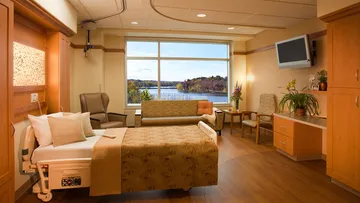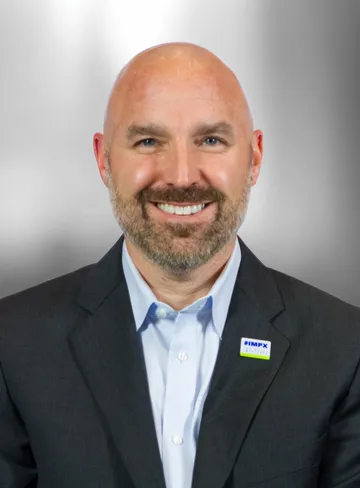What do you find is interesting about patient connection and personalization and how that’s influencing the patient experience? Do you find anything that is starting to become more of a hot topic button around those issues?
If we think about experience from the broadest sense, the way we look at it really is all that a patient or family member encounters and what drives it. So, it is quality, safety, service, outcomes, and cost. It’s the kind of organization we build beginning with culture, focused on the engagement of the people and the caregivers and it’s how well we take care of people providing care. As much as physicians know how to provide a procedure or surgeons know how to conduct surgery, no two surgeries, even if they are doing the same surgery, are the same. So, if you think about it, healthcare as much as it’s generalized, is the most personalized service we can and must provide.
And so, it’s the combination of all those factors, the personalization and ultimately the recognition that you’re dealing with an individual. The one thing that I would like to reinforce and has been a central point for our work at The Beryl Institute is that we’re just human beings caring for human beings. Experience happens at the point of interaction between one person and another. So, if there is not a sense of personalization, if you treat the person in front of you in a generalized way, then you’re starting at a deficit, you are missing the chance to relate, to meet needs and drive the best in results. I think people are just not aware that we need to be better at it in terms of acknowledging the human in front of us and how we then create an experience for each individual we have the opportunity to serve.
Are you finding any input or ideas on how patient experience can be influenced by other markets such as hospitality or retail or education?
Yes, you see it because people that are taking on experience roles in healthcare are not just individuals with healthcare backgrounds. The former vice president of Patient Experience for the Inova Healthcare System in Virginia was a 30-year senior executive at the Ritz Carlton. In three years, he reframed the entire experience strategy for the system, focusing on the very nature of generalized efforts and individuals needs necessary to be successful and he did it within the constraints of healthcare but he brought different knowledge. I think that engaging cross industry expertise is something healthcare has not been very good at, but it’s learning.
Healthcare has been quick to adopt things like lean methodology and process improvement because healthcare has been process driven. It’s been less expedient in adopting thoughts from outside industries around the ways it treats people and engages them.
What’s even more interesting is when you talk to clinicians you hear them say, “we’re in healthcare, we’re not a hospitality business. We’re not a hotel. We’re not retail. We’re not any of those things.” And the fact is the data proves it. The consumer response is that in hotel or in retail or insurance or airlines, people are less likely to be influenced by personal experience than they are in healthcare. In healthcare the impact of experience is twice as important; 42 percent of people say that the experiences they have will drive choices where it’s much less in those other industries. So, in fact, it’s more important. I don’t think we’ve acknowledged it that way.
Do you see any of your studies or any of your work starting to dissect how the experience varies by generations?
There’s emerging research we’re writing right now for the Patient Experience Journal. But, I think you could apply the consumer research that’s being done generationally to healthcare. And if you look at the generational lay of the land, you’re talking about the baby boomers who are way more willing to accept the way things are. So, those folks are going to follow the process of healthcare versus Generation X that wants to create their process versus millennials that don’t want a process. So, there are generational aspects clearly playing out in the way that healthcare delivers care.
We also have the challenge of meeting the needs of the growing number of baby boomers seeking care while at the same time addressing the huge influx of new people in the healthcare system that are expecting something very different. Personalized, flexible, engaging, understanding and so there’s an interesting dilemma I think healthcare is experiencing and I think you’re actually seeing it put stress on leadership. You’re seeing a lot of baby boomer leadership in healthcare retiring because the market is changing so fundamentally. It’s really an interesting dynamic right now in healthcare in general.
I spoke to veterans about why they don’t want to come back to the public life and why it’s so hard for them to reengage when they’re at the VA. They don’t have that sense of community or the camaraderie. It’s the same for physicians. So, how do you encapsulate that within the space that you’re designing? How do you educate the individuals on the team about why culture is so important and how it’s influencing not only the patients but your staff, your other team members, your coworkers, etc.?
In the last five years, we’ve seen a transformation in thinking on all that actually happens in healthcare. We have an experience in healthcare, it is more than just a process to fix, but now one to acknowledge the human in the process. That is not simply the change in healthcare form the inside out, but because the pressures outside of healthcare in. This pertains as much to place as it does to the people issues we have discussed. Whether we’re aware of it or not, you have an experience when you walk into a physical space, right? You can then create how that experience is had. So, then the perfect metaphor for patient experience is that: when someone walks into a healthcare encounter, they’re having an experience whether we plan for it or not. We can plan for the best experience or we can just let it happen by chance. That’s where I think the conversation is evolving. People can be intentional in all the aspects of the kind of experience they want to have and want to provide for people receiving care across the continuum and all the spaces in between, and that’s the exciting opportunity I think we have in general.
Have you discovered anything in regards to clinical effectiveness? Have you seen anything on how the process itself gets changed because of what individuals are learning within the Patient Experience Institute?
Interesting question. I think in general people are changing their thinking. Even five years ago people were addressing the concept of experience as just a service excellence or satisfaction focus. But now I believe people are acknowledging that experience impacts safety and all these other aspects and that’s the key for me.
What I’m seeing in the transformation is an awareness of all that experience now truly encompasses and the real impact on outcomes it has. We just did a paper on spirituality in patient experience. It gets to the fact that we are not just treating bodies but we’re treating people that have emotions and spirits and all these things are driven by lots of things in their lives, not just religion. All that gets back to is the foundation idea of human beings caring for human beings, and that shift of thinking is significant because it’s not just about a process checklist it about a strategic and comprehensive vision for what healthcare can, and should be.
The checklist manifesto from a clinical safety standpoint still makes sense. When you’re in a surgical suite, you definitively want a checklist. When you’re in manufacturing, you want a checklist of how you’re going to operate machinery. The patient experience isn’t that clean because a human being doesn’t have a checklist. You and I, we don’t want all the same things or expect the same things in our encounters. So, if we’re following the same checklist, one of us would probably be overjoyed, one of us might be disappointed. Therein lies our greatest opportunity. You can’t emphasize process alone and prove yourself successful anymore in healthcare. If you don’t think about the foundation of the organization on which you’re providing relationships and how you look to manifest those encounters in the interest of the person in front of you, you may still have successful clinical outcomes on occasion, but you may never provide the comprehensive experience people we serve ultimately expect and deserve.
For more information regarding our Patient Experience Research, contact jelkins@kahlerslater.com



